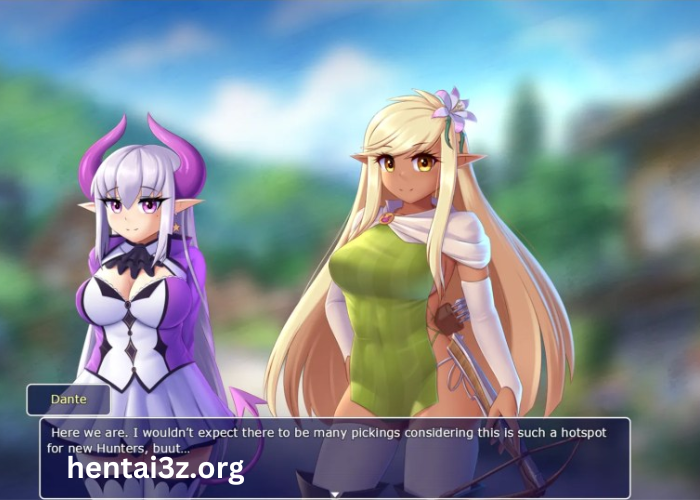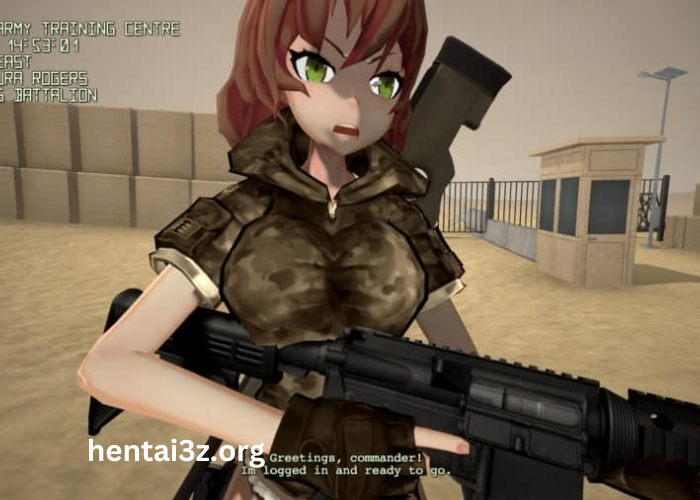As a daughter, you may have experienced the unique and often complex dynamics that exist between you and your mother. The mother-daughter relationship is one of the most profound and influential bonds in a person’s life, shaping our sense of self, our values, and our relationships with others.
In this article, we’ll delve into the factors that influence mother-daughter dynamics, the role of communication, common challenges, and strategies for nurturing healthy and fulfilling relationships. Whether you’re navigating your own mother-daughter dynamic or seeking to understand this dynamic better, this comprehensive guide will provide you with insights and practical advice.
Introduction to Mother-Daughter Dynamics
The mother-daughter relationship is a multifaceted and intricate bond, shaped by a myriad of factors, including:
- Emotional Attachment: The deep emotional connection and attachment that develops between a mother and her daughter, often rooted in the early years of life.
- Societal Expectations: The societal and cultural norms that dictate the roles and behaviors expected of mothers and daughters, which can create tension and conflict.
- Personal Histories: The unique histories, experiences, and perspectives that each mother and daughter bring to the relationship, which can influence their interactions and understanding of one another.
- Generational Differences: The generational gaps that can exist between mothers and daughters, leading to differing values, beliefs, and perspectives on life.
Understanding these factors is crucial in navigating the complexities of the mother-daughter dynamic and fostering a healthy, fulfilling relationship.
Factors that Influence Mother-Daughter Dynamics
Several key factors can shape the dynamics between mothers and daughters, including:
Childhood Experiences
The experiences and relationships you had with your mother during your childhood can have a profound impact on your current mother-daughter dynamic. Positive, nurturing experiences may foster a strong, supportive bond, while negative or traumatic experiences can lead to feelings of resentment, trust issues, or a desire for independence.
Personality Differences
The unique personalities of both the mother and daughter can play a significant role in their relationship. For example, a more dominant, controlling mother may clash with a more independent, assertive daughter, leading to power struggles and communication breakdowns.
Life Stages and Transitions
The different life stages and transitions that mothers and daughters experience, such as adolescence, marriage, parenthood, and aging, can significantly impact their relationship. These changes can challenge the established dynamics and require both parties to adapt and redefine their roles.
Cultural and Societal Influences
The cultural and societal norms and expectations surrounding the roles and behaviors of mothers and daughters can shape the dynamics between them. For instance, in some cultures, there may be a strong emphasis on filial piety and obedience, which can create tension if the daughter seeks greater independence.
Understanding these influential factors can help you and your mother navigate the complexities of your relationship and work towards a more harmonious, fulfilling connection.
The Role of Communication in Mother-Daughter Relationships
Effective communication is the cornerstone of any healthy relationship, and the mother-daughter dynamic is no exception. Open, honest, and respectful communication can help foster understanding, resolve conflicts, and strengthen the bond between mothers and daughters.
Active Listening
One of the most crucial aspects of communication in mother-daughter relationships is active listening. This involves fully engaging with your mother, seeking to understand her perspective, and validating her feelings and experiences. By actively listening, you can gain valuable insights into her thoughts, motivations, and concerns, which can help you navigate the relationship more effectively.
Expressing Emotions
Mothers and daughters often struggle to express their emotions openly and honestly, which can lead to misunderstandings and resentment. Encouraging both parties to share their feelings, fears, and needs in a safe and non-judgmental environment can facilitate deeper connection and mutual understanding.
Conflict Resolution
Inevitably, there will be times of conflict and disagreement in the mother-daughter relationship. Learning to navigate these challenges through constructive dialogue, compromise, and a willingness to see each other’s perspectives can be instrumental in resolving conflicts and strengthening the bond.
By prioritizing effective communication, you and your mother can work towards a more fulfilling, supportive, and collaborative relationship.
Common Challenges in Mother-Daughter Relationships
While the mother-daughter relationship can be incredibly rewarding, it is not without its challenges. Some of the most common challenges faced in this dynamic include:
- Boundary Issues: Mothers may struggle to respect their daughter’s need for independence and autonomy, while daughters may feel smothered or controlled by their mother’s involvement in their lives.
- Unmet Expectations: Daughters may feel disappointed or resentful when their mothers do not meet their expectations, while mothers may feel unappreciated or misunderstood.
- Generational Gaps: Differences in values, beliefs, and life experiences between mothers and daughters can lead to misunderstandings and conflict.
- Competing Roles: As daughters become wives, partners, and mothers themselves, the dynamic can shift, and they may struggle to balance their new roles with their relationship with their mother.
- Trauma and Abuse: In some cases, the mother-daughter relationship may be marred by past trauma, abuse, or neglect, which can have a lasting impact on the dynamics and trust between them.
Navigating these challenges requires empathy, patience, and a willingness to work through the complexities of the relationship. By addressing these issues head-on and seeking to understand each other’s perspectives, mothers and daughters can find ways to overcome the obstacles and strengthen their bond.
The Impact of Cultural and Societal Expectations on Mother-Daughter Dynamics
Cultural and societal norms and expectations can have a significant impact on the dynamics between mothers and daughters. These expectations can shape the roles, behaviors, and interactions that are deemed acceptable or desirable within the relationship.
For example, in some cultures, there may be a strong emphasis on filial piety, where daughters are expected to be obedient, dutiful, and prioritize their mother’s needs over their own. This can create tension if the daughter seeks greater independence or self-expression. Conversely, in more individualistic cultures, the emphasis may be on personal autonomy, which can clash with a mother’s desire for a closer, more involved relationship.
Additionally, societal pressures and expectations around motherhood and womanhood can also influence the mother-daughter dynamic. Mothers may feel the need to live up to societal ideals of the “perfect” mother, while daughters may internalize messages about their own worth and roles as women.
Understanding the cultural and societal contexts that shape your mother-daughter relationship can help you and your mother navigate these expectations with greater awareness and flexibility. By acknowledging and addressing the impact of these external factors, you can work towards a more authentic, fulfilling, and mutually supportive relationship.
Strategies for Improving Mother-Daughter Relationships
Nurturing a healthy and fulfilling mother-daughter relationship requires a willingness to work on the dynamic and implement strategies for growth and improvement. Here are some effective strategies to consider:
- Practice Empathy: Cultivate a deeper understanding and appreciation for your mother’s experiences, perspectives, and emotions. Actively listen and seek to understand her point of view, even if it differs from your own.
- Set Boundaries: Establish clear and respectful boundaries that allow both you and your mother to feel heard, respected, and in control of your own lives. This may involve learning to say “no” or communicating your needs assertively.
- Communicate Openly: Foster an environment of open, honest, and constructive communication. Encourage both you and your mother to express your feelings, concerns, and needs without judgment or criticism.
- Embrace Differences: Acknowledge and celebrate the unique differences between you and your mother. Recognize that these differences do not make your relationship any less valuable or meaningful.
- Seek Compromise: When conflicts arise, be willing to compromise and find mutually acceptable solutions. Avoid power struggles and instead focus on collaborative problem-solving.
- Forgive and Let Go: If there are past hurts or resentments, work towards forgiveness and letting go. This can help to heal old wounds and create a more positive, forward-looking relationship.
- Spend Quality Time Together: Prioritize quality time with your mother, engaging in activities and conversations that bring you closer together and foster a sense of connection.
- Encourage Personal Growth: Support each other’s personal growth and development, celebrating each other’s achievements and encouraging one another to pursue your individual passions and goals.
By implementing these strategies, you and your mother can work towards a more fulfilling, collaborative, and supportive relationship, one that nurtures your personal growth and strengthens the bond between you.
Seeking Professional Help for Strained Mother-Daughter Relationships
In some cases, the challenges and complexities of the mother-daughter relationship may require professional intervention. If you and your mother are struggling with persistent conflicts, communication breakdowns, or an inability to resolve long-standing issues, seeking the guidance of a therapist or counselor can be incredibly beneficial.
A trained mental health professional can help you and your mother:
- Identify the root causes of the challenges in your relationship
- Develop effective communication and conflict resolution skills
- Explore and address any underlying emotional or psychological factors
- Set healthy boundaries and establish more constructive patterns of interaction
- Gain a deeper understanding of each other’s perspectives and needs
- Work towards forgiveness, healing, and the rebuilding of trust
Through a combination of individual and joint therapy sessions, you and your mother can work to overcome the obstacles in your relationship and cultivate a more positive, fulfilling, and supportive dynamic.
Remember, seeking professional help is not a sign of weakness, but rather a testament to your commitment to improving your relationship and creating a healthier, more harmonious connection.
The Importance of Self-Reflection and Personal Growth in Mother-Daughter Dynamics
Navigating the complexities of the mother-daughter relationship often requires a deep level of self-reflection and personal growth from both parties. By engaging in this process, you and your mother can gain valuable insights into your own behaviors, beliefs, and patterns of interaction, which can ultimately lead to a more harmonious and fulfilling relationship.
Some key areas of self-reflection to consider include:
- Examining Your Own Biases and Assumptions: Reflect on the preconceived notions, judgments, or expectations you may have towards your mother or the mother-daughter dynamic. Challenging these biases can open the door to greater understanding and empathy.
- Exploring Your Emotional Responses: Identify the emotions that arise in your interactions with your mother, and explore the root causes of these feelings. Understanding your emotional triggers can help you respond more constructively.
- Recognizing Your Communication Patterns: Observe the ways in which you and your mother communicate, including any recurring themes, behaviors, or dynamics that may be hindering your relationship.
- Embracing Personal Growth and Transformation: Commit to your own personal growth and transformation, working to develop qualities such as patience, flexibility, and emotional maturity. As you evolve, your relationship with your mother may also transform.
Conclusion: Nurturing Healthy and Fulfilling Mother-Daughter Relationships
The mother-daughter relationship is a complex and multifaceted bond that can be both deeply rewarding and profoundly challenging. By understanding the factors that influence this dynamic, prioritizing effective communication, and implementing strategies for improvement, you and your mother can work towards a more harmonious, supportive, and fulfilling relationship.
Remember, the journey of nurturing a healthy mother-daughter relationship is an ongoing process, one that requires patience, empathy, and a willingness to adapt and grow together. By embracing the complexities of this dynamic and seeking to address the challenges head-on, you can cultivate a bond that enriches both your lives and creates a lasting legacy of love, understanding, and mutual respect.




